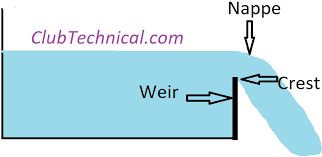Gypsum in Construction Works
Gypsum in Construction Works
Gypsum is one of the widely used construction material mainly in interior designing. Gypsum is used as surface materials. Its application is prominent in wall and ceiling construction. It is also manufactured as a prefabricated unit, like gypsum board which is bought at the time of installation.
The ability of gypsum to give a comfortable and aesthetic ambiance as a construction material increase the demands of gypsum. It is a nature's product that is commonly available. It is free of odor. Nowadays many of the interior and the exterior construction features are mostly governed by gypsum construction or gypsum products. The advancement of gypsum construction in a continuous process is due to its reduced time and cost of construction. With time, gypsum products gain increasing properties like increased fire resistance, acoustic properties for noise insulation etc..
Properties of Gypsum as a Building Material
Fire Resistance of Gypsum
Non-Combustible Property of Gypsum
As explained the heating up of gypsum products results in heating up of water crystals present in the gypsum material. This dehydration of gypsum by heat is called as calcination. The calcination results in a covering over the materials that stop it to undergo combustion and allow the material near them to maintain a lower safer temperature.
Even after complete calcination of water crystals, the residue would behave like an insulating layer till it gets separated. The gypsum is considered as a good fire retarder because of its noncombustible property and its capability to delay the spreading of fire for hours depending upon what extend the gypsum products are used.
Acoustic Properties of Gypsum
Gypsum products are developed to focus more on sound insulation properties. Other methods like masonry would act good, which is commonly used in a higher thickness that now is found less demanding compared to gypsum.
Gypsum plasterboard is specially designed for noise reduction and prevent reverberation. Incorporating an air space between two solid gypsum wall bring higher acoustic performances, by restricting the noise to pass through. For example, instead of a masonry wall of 110mm thickness, we can install a drywall of 75mm thickness to achieve same sound performance.
Thermal Properties of Gypsum
The thermal properties rendered by the gypsum construction would enable good balancing of indoor humidity and temperature. Gypsum construction incorporating cavities, like plasterboard or formwork construction with gypsum gives extra insulation properties.
Use of plaster boards in interior construction acts as a vapor barrier preventing indoor humidity.
Types of Gypsum Products and their Uses
- Gypsum Plaster Boards -Plasterboard are panels used as partitions and for the lining of walls and the ceilings.
- Used for Plaster for Decoration - The combination of gypsum powder with water makes gypsum plaster that support the formation of beautiful aesthetically pleasing linings for ceilings or wall. They help in molding as well as shaping.
- Used for walls and ceiling
- Gypsum plaster Blocks used as partitions and as tiles
- Used for self-leveling screeds
- Fiberboard with Gypsum
Advantages of Gypsum as a Building Material
- Delivers Smooth Surface - It is used as a plaster material if properly done would provide us with a smooth white finish, which is free of cracks as well as scars. This is a highlighting property when it comes to indoor finishing.
- Balance Indoor Atmosphere - It is of natural origin. They have a natural capability of balancing the indoor climate as well as humidity.
- It is environmental friendly
- It is fire resistant in nature
- It has high thermal and acoustic insulation
- It provide good aesthetic and functional features - The creativity of architects is boosted by the incorporation of gypsum products, within the budget. It provides a variety of stunning design options.
- Ease of Installation - Using gypsum products, for example, for an internal wall construction, we just need to fix the frame and fill up the joints. The full process is clean, easy and fast. Using gypsum plaster as a final finish reduces the work of additional painting. The white finish itself give a clean appearance.
- Variety of Gypsum Products - A large variety of gypsum products is available that meets several practical and aesthetic requirements. The choice of the right product is made with the help of unique packages that is given by the manufacturers with adequate technical assistance.





Comments
Post a Comment